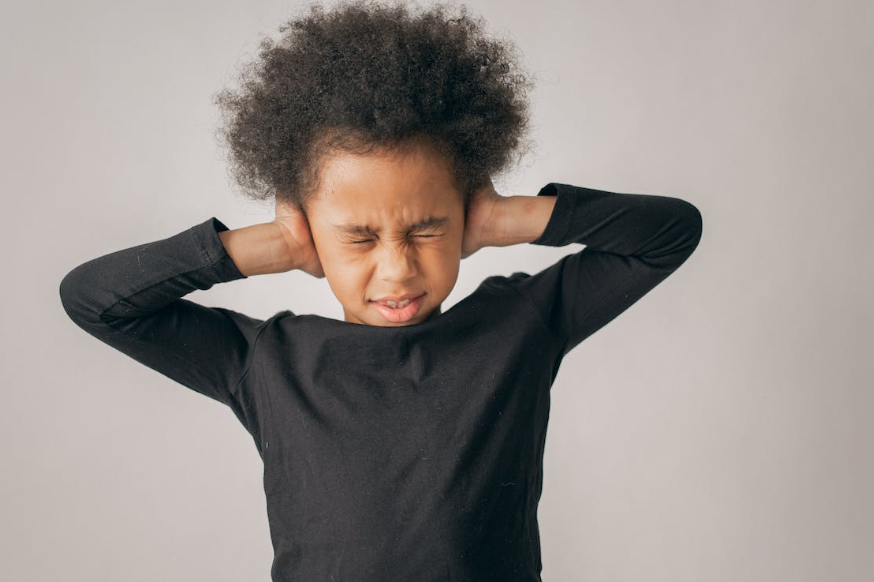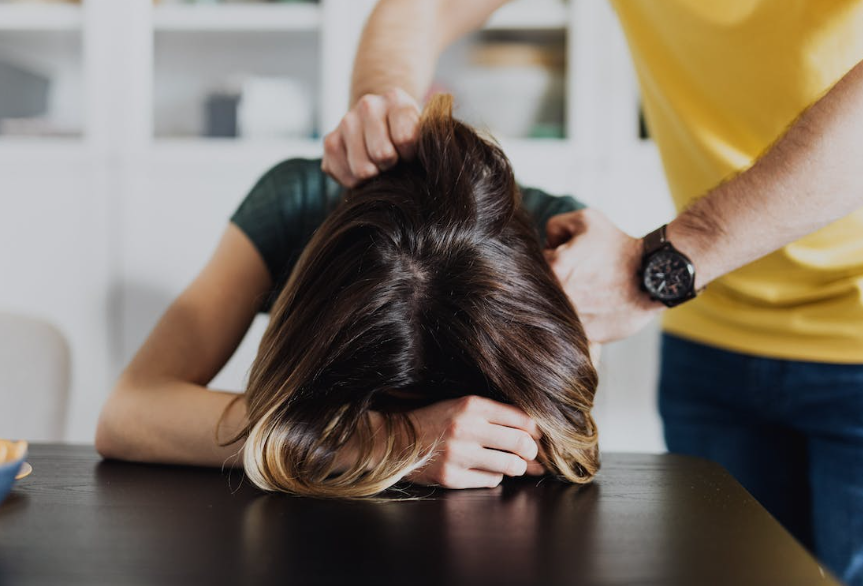Will Mindfulness Help My Anxiety?
While the art of mindfulness has roots stemming back thousands of years, it has more recently been championed by the wellness industry as an approach to help ease stress and encourage relaxation.

Selfpause Affirmation App
Download the app to get 1,000’s of affirmation meditations and everything you need to write, record and listen to your own.
If you’re suffering from anxiety, mindfulness techniques may help you. These techniques help you to become aware of the present moment, and shift your attention away from thoughts that cause anxiety. By becoming aware of what is happening now, you will learn to become less reactive thoughts will reduce anxiety. Mindfulness techniques have been around for a long time.
Mindfulness helps you become more aware of your current physical and mental states

Mindfulness can help you cope with stress and improve your overall quality of life. It improves your ability to stay calm, and can be practiced every day. The key is to be observant of your current physical and mental state, and you will find that your responses to stressful situations will improve.
The first step to using mindfulness is to identify the causes of your stress and worries. When you are under stress, the hormones in your body release stress hormones, which lead to muscle tension, a clouded mind and a diminished ability to relax. By practicing mindfulness, you can direct your attention away from worries and onto the present.
Originally from Buddhism, mindfulness is a powerful practice that can help you become more aware of your present physical and mental state. While mindfulness originated in Eastern philosophy, it can benefit everyone, from children to elderly adults. It is a practice that has been gaining attention in the medical field. Founder Jon Kabat-Zinn developed the Mindfulness-Based Stress Reduction (MBSR) program in the 1970s to help people suffering from chronic pain. In doing so, he brought mindfulness into the mainstream of clinical practice.
Mindfulness is a powerful method that can help you deal with stressful situations and difficult emotions. It’s practiced through various meditation techniques. It involves paying close attention to your present moment and sensations without judgment. You can begin to incorporate the practice into your everyday life by adding short mindfulness sessions throughout the day.
It can be challenging to incorporate mindfulness into your daily routine. Fortunately, there are simple ways to integrate the practice into your daily activities. For instance, family mealtimes can be screen-free. Or you can rip a piece of paper into a horse shape and ask each family member to close their eyes when the “start” is said. Once everyone has finished creating horses, they can share them.
Although mindfulness is a practice that takes time to develop, you should be patient with yourself as you learn more about it. Adding mindfulness meditation to your daily life can improve your focus and memory. Mindfulness can also improve relationships and reduce feelings of depression and anxiety. It’s possible to practice mindfulness for a few minutes every day, and you’ll begin to feel the benefits in a couple weeks.
It helps you shift attention away from thoughts that cause anxiety

People who suffer from excessive worries may benefit from the practice of mindfulness. Mindfulness involves tuning into the thoughts, feelings, actions, and bodily sensations that cause anxiety. Mindfulness helps you notice when these thoughts are affecting you and shift your attention away from them. To practice mindfulness, simply take a moment to identify what is making you feel anxious and name it. This way, you can shift your attention to the present moment and experience the anxiety differently.
The key to mindful awareness is to focus on the present moment. When you experience anxiety, it plays out like a wave of emotional intensity. Similarly, when you experience pleasant feelings, you are more apt to notice them. Small moments of happiness always happen on a daily basis, but people with anxiety and depression often have difficulty paying attention to them.
A therapist can help you overcome anxiety and other mental illnesses by teaching you mindfulness techniques. This helps you focus on the present moment and live fully in the tangible world. An online therapist can provide assistance with these techniques. BetterHelp has more than 20,000 licensed therapists who offer online therapy sessions for as little as $60 per week.
When practicing mindfulness, it is important to let go of judgmental thoughts. Those thoughts only serve to exacerbate your struggles. If you can learn to practice mindfulness consistently, it will become easier to do. If you find this difficult, try including some mindful activities into your family life. For example, you can make family mealtimes a screen-free zone. Or, you and your family can try making a paper horse together. Then, every member of the family has to close their eyes when the word “start” is said, and they must share their horses at the end.
Practicing mindfulness has many benefits, including improving physical health. It can help people reduce their levels of stress, lower blood pressure, and experience better sleep. It can even reduce emotional reactivity and improve behavioral regulation.
It helps you become more aware of your current physical and mental states

When you experience anxiety, you can try to bring awareness to it. You can explore the details of your anxiety and try to feel it in your body. This technique can help you cultivate balance and fortitude in facing the things that cause you anxiety.
Mindfulness also helps you become more aware of the causes of your anxiety. It helps you uncover old patterns of conditioning and limiting self-perceptions. Once you understand these, you can set yourself free of them. Try recognizing these thoughts and emotions as waves.
Mindfulness is a practice that helps you become more aware of your current physical, mental, and emotional state. You can learn to identify your emotions and sensations and then let them go. It can also help you recognize and disengage from unwholesome mental states.
One of the first exercises in mindfulness is learning to become aware of your breath. You carry your breath with you everywhere, so the breath is a great focus for staying in the present. Focus on your breathing in and out and notice the rise and fall of each breath.
If you’re feeling a little daunted by a public speech, try trying mindful breathing. Breathing deeply and slowly helps you calm your nervous system. By doing this, you’ll find yourself more relaxed and able to deal with anxiety and the pressure that comes with the occasion.
In addition to being aware of your current physical and mental states, mindfulness can help you manage panic attacks. It helps you become aware of your thoughts, feelings, and memories and will help you better cope with anxiety. It can help you stop thinking about the past and begin practicing non-striving.
You can even try using mindfulness in groups. If you do a meditation with friends or family, you can share the practice with them. You can practice this with them to learn more about yourself. This way, you can learn to relate to others and reduce the level of anxiety in others.
You can also practice mindfulness during your everyday activities, such as walking or running. By practicing mindfulness while doing these activities, you will be able to focus on your actions and the things around you. For example, you can pay attention to your body’s motion, temperature, colors, and sounds, and observe how they affect your daily life.
It helps you reduce reactiveness

The practice of mindfulness can help you deal with anxiety by putting life in perspective and decreasing the amount of reactiveness you feel. It helps you identify when you are experiencing anxious thoughts, and allows you to move beyond the constant state of feeling uncomfortable. By observing your thoughts and feelings with an open mind, you can respond more freely and accurately to different situations.
When you are experiencing anxiety, your sympathetic nervous system is activated. This triggers your body’s high alertness and physical stress. This means that attempting to manage your anxiety with hard work is not always successful. While this may work temporarily, it often does not change the underlying negative thoughts that contribute to anxiety. This can make it difficult to live a happy and productive life. It can be helpful to engage in therapy to help you develop compassion for your feelings and to learn the practice of mindfulness. Other techniques can include grounding exercises and breathing techniques.
In order to develop mindfulness skills, you need to start by observing your thoughts and feelings. Be curious about how they change as you pay attention to them. You can also begin to notice how these thoughts are affecting your body. If you can make these observations, you will be able to change the way you deal with anxiety.
Mindfulness can help you reduce your anxiety by providing a shift from a reactive to a relaxed state. For example, Sharon had a stressful job that involved talking to frustrated customers. At the same time, she spent her evenings caring for her daughters. Added to that, her parents were experiencing health problems.
Mindfulness requires a daily practice of awareness. It can improve your physical health by decreasing your heart rate and blood glucose. Try meditating every day for at least a few minutes. You should try to sit in a quiet area, take a deep breath, and gently bring your attention back to your breathing. You can also set a timer to help you stay focused and aware.
Mindfulness practice can also help you understand and identify triggers. Being aware of your triggers helps you pause before acting. By giving yourself space to think, you can choose the best way to react.
Our Top FAQ's
Mindfulness is a mental state achieved by focusing one’s awareness on the present moment, while calmly acknowledging and accepting one’s feelings, thoughts, and bodily sensations. Research has shown that mindfulness practice can help to reduce anxiety by increasing the ability to regulate emotions, decreasing rumination (repeatedly dwelling on negative thoughts), and decreasing negative thinking patterns.
Yes, mindfulness techniques can be used in combination with other forms of treatment for anxiety, such as medication or therapy. In fact, many mental health professionals incorporate mindfulness techniques into their treatment plans for individuals with anxiety. Research has shown that combining mindfulness with other forms of treatment can lead to more effective results in reducing anxiety symptoms.
There are many ways to begin a mindfulness practice, and the best approach for you may depend on your personal preferences and lifestyle. Some common ways to start practicing mindfulness include:
-
Meditation: This involves sitting or lying down in a comfortable position and focusing your attention on your breath, a mantra, or an object. You can start with short sessions (e.g., 5-10 minutes) and gradually increase the length of your practice as you become more comfortable.
-
Body scan: This involves lying down or sitting in a comfortable position and focusing your attention on each part of your body, starting at your toes and moving up to the top of your head. As you do this, try to let go of any tension or discomfort you may be feeling.
-
Mindful movement: This involves paying attention to your body and your breath as you move through a series of yoga poses, tai chi movements, or other physical activities.
-
Daily mindfulness: You can also practice mindfulness in your everyday life by bringing your attention to the present moment during activities such as walking, eating, or showering.
There are many mindfulness exercises that may be helpful for reducing anxiety, and the effectiveness of a particular exercise may vary from person to person. Some specific mindfulness exercises that may be particularly helpful for reducing anxiety include:
-
Progressive muscle relaxation: This involves tensing and relaxing different muscle groups in your body, starting at your toes and moving up to the top of your head. As you tense each muscle group, try to focus on the sensation of the tension, and then as you relax, try to let go of any tension or discomfort you may be feeling.
-
Loving-kindness meditation: This involves silently repeating phrases of love and compassion to yourself and others. You can start by focusing on yourself and saying phrases such as “May I be happy, may I be healthy, may I be at peace.” Then, you can extend these phrases to others, such as “May my loved ones be happy, may they be healthy, may they be at peace.”
-
Belly breathing: This involves focusing on your breath and the sensation of the air moving in and out of your body. You can try placing one hand on your belly and the other on your chest, and as you inhale, try to feel your belly rise. As you exhale, try to feel your belly fall.
Mindfulness practice can be helpful for a wide range of anxiety disorders, including generalized anxiety disorder, social anxiety disorder, panic disorder, and specific phobias. Research has shown that mindfulness can be an effective treatment for reducing anxiety symptoms, and it may be particularly useful for individuals with generalized anxiety disorder, as it can help to reduce the frequency and intensity of anxious thoughts. However, it is important to note that mindfulness is not a standalone treatment for anxiety, and it is typically most effective when used in combination with other forms of treatment, such as medication or therapy. If you are experiencing anxiety and are interested in trying mindfulness as a treatment option, it is recommended to speak with a mental health professional who can help you determine the best approach for your specific needs.
